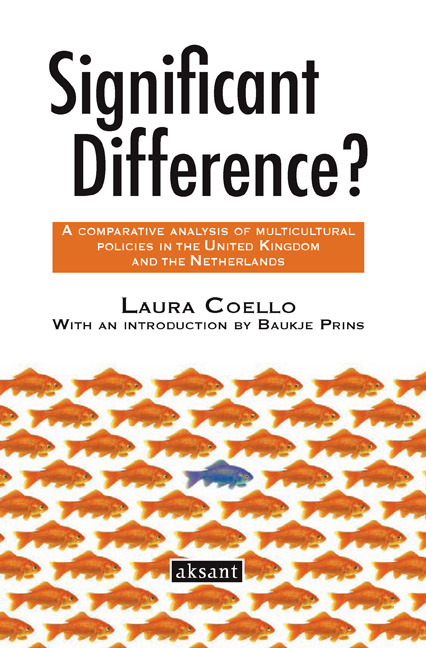2 - Multiculturalism
Published online by Cambridge University Press: 20 January 2021
Summary
Multiculturalism was adopted gradually, providing policy makers with new instruments for dealing with diversity challenges. Only in some cases was multiculturalism adopted as an integral strategy resulting in a systematic review of legislation and followed up by a coherent set of policies and instruments. Even if it was not the official choice, by the end of the 1990s multiculturalism was a prominent strategy when dealing with diversity.
Why Multiculturalism?
The ideology of multiculturalism is based on the Kantian principle of individual freedom to live by the rules and judgments of a person's own conscience. The idea of individual freedom was developed further into theories of liberalism. Liberalism states that individuals have some fundamental freedoms and one of these is the liberty to explore and choose a concept of what is the ‘good life’. For this, two preconditions are needed: the freedoms and the resources.
By freedom, it is meant that individuals should be able to choose between different concepts of the ‘good life’. They should be free to explore and adopt, leave and reconsider these different concepts. Hence, liberal governments should abstain from promoting a concept of ‘the good life’, restrain from enforcing morals and protect individual privacy. In many countries, these freedoms take the form of civil and human rights.
By resources, it is meant that not only should different lifestyles and cultures exist. Governments should create the circumstances necessary for different cultures to exist so that individuals can explore, question and compare what they consider best for themselves in the light of other views. Protecting groups’ cultures, without allowing these groups to restrict individual's choices even if they are part of the group, then becomes necessary.
Both preconditions are equally important in an individual's quest to find and adopt his/her own concept of the ‘good life’. Most liberal thinkers assume that those cultures that need to exist are those that develop within their own territory. Yet, immigration and increased exposure to foreign practices has widened the range of choices in which the ‘good life’ can be found and against which it can be evaluated “one could argue that a government policy which enabled (…) immigrants to re-create their own societal culture would benefit everyone, by enriching the whole society”.
- Type
- Chapter
- Information
- Significant difference? A comparative analysis of multicultural policies in the United Kingdom and the Netherlands , pp. 21 - 26Publisher: Amsterdam University PressPrint publication year: 2010



